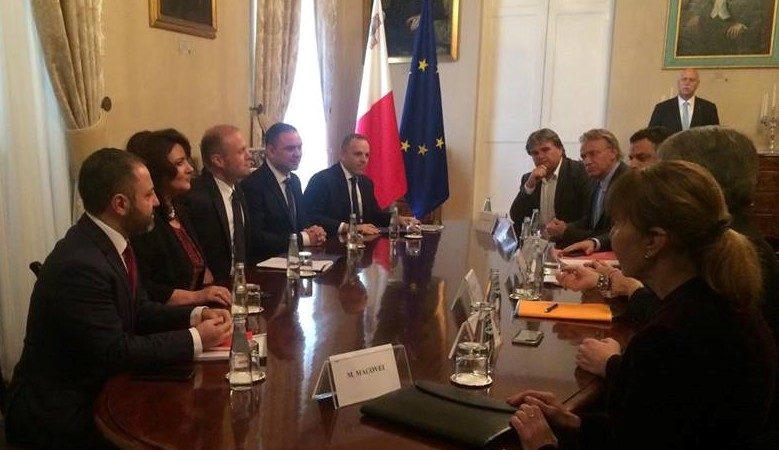In the latest show down between the Maltese government and MEPs who presented a report on the rule of law in Malta, the Joseph Muscat administration reiterated its narrative that it had carried out “a significant amount of reforms” since taking office in 2013 and MEPs showed “a fundamental lack of understanding” of how things work in Malta.
In a 44-page reply issued on Friday, the government said that while it was “open to discussion on the improvement of its political, judicial and prosecution institutions,” the recommendations proposed by MEPs would not effectively improve the situation: “they are based on a report which fails to paint a true picture of the government, media and regulatory bodies.”
The government pointed out that it had “certain doubts as to the legality of the ad hoc delegation in view of its composition and the manner in which it operated,” adding that while MEPs criticised Malta’s institutions and the decisions taken by the government, they ignored similar situations in other EU member states.
Read government’s reply in full here
In November 2017, the European Parliament demanded that the rule of law in Malta be closely monitored to ensure proper law enforcement and compliance with EU rules on money laundering and banking activities.
MEPs noted the Maltese authorities’ failure to investigate serious allegations of corruption and the sale of EU citizenship through Malta’s cash for passports scheme.
Following their fact finding mission, the MEPs led by Socialist Ana Gomes also called for an independent international investigation into journalist Daphne Caruana Galizia’s assassination, with the full involvement of Europol.
The resolution adopted by the European Parliament includes the remote possibility of the EU opening infringement procedures against Malta by invoking Article 7 of the EU treaty, which could see Malta losing its voting rights unless it adheres to the demands put forward by the European Commission.
But in its lengthy reply, government said the report showed “a fundamental lack of understanding as to the roles of the various institutions in Malta… how those institutions perform their duties and their powers under statute.”
It added that “significant elements of the information relied on by the Members in drawing up their recommendations is out of date and/or inaccurate” while claiming that confidential information relating to the work of the Maltese anti-money laundering agency (FIAU) was disclosed without any prior authorisation.
PN MEP David Casa – who was one of the MEPs on the fact finding mission – described government’s reply as “outrageous.”
“The document issued by the government suggests that no action whatsoever was taken by the police because ‘there were no sufficient grounds to suspect criminal activity’ and that an investigation would have ‘clearly been a waste of police resources’,” Casa said.
Attempts to belittle the relevance of FIAU reports on the basis of which magisterial inquiries were being held was outrageous, Casa added.
The MEP did not mince his words: “This document is an embarrassment. MEPs have followed the Panama Papers and read the FIAU reports. Providing such pathetic explanations will only be counterproductive” .












